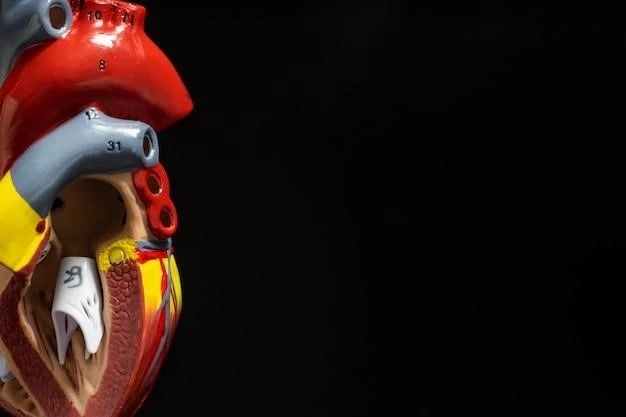Overview of Cardiofaciocutaneous Syndrome
Cardiofaciocutaneous Syndrome is caused by genetic mutations․ This rare condition affects the heart, face, and skin․ Learn more about its causes․
Causes of Cardiofaciocutaneous Syndrome
Cardiofaciocutaneous Syndrome is primarily caused by mutations in genes such as BRAF, MAP2K1٫ MAP2K2٫ and KRAS․ These genetic alterations disrupt cell signaling pathways critical for normal development․ The syndrome is considered a genetic disorder٫ and in most cases٫ it is not inherited but occurs sporadically due to de novo mutations․ These mutations affect proteins involved in cell growth٫ division٫ and differentiation٫ leading to the characteristic features of the syndrome․ Understanding the underlying genetic causes of Cardiofaciocutaneous Syndrome is crucial for accurate diagnosis and potential targeted treatments in the future․
Symptoms and Diagnosis of Cardiofaciocutaneous Syndrome
Identifying Cardiofaciocutaneous Syndrome involves recognizing distinctive facial features, heart abnormalities, skin issues, and developmental delays․
Symptoms of Cardiofaciocutaneous Syndrome
Common symptoms include distinctive facial features like a high forehead, sparse eyebrows, heart abnormalities, skin problems such as dry skin or eczema, short stature, intellectual disabilities, and delays in motor skills and speech development․ Individuals may also experience vision and hearing problems, feeding difficulties, and seizures․ These symptoms can vary in severity from person to person, making accurate diagnosis crucial for appropriate management․
Diagnosis of Cardiofaciocutaneous Syndrome
Diagnosing Cardiofaciocutaneous Syndrome typically involves a thorough physical examination, analysis of medical history, genetic testing to identify specific gene mutations associated with the syndrome, and imaging studies to assess any heart abnormalities or other physical manifestations․ Evaluation by a team of healthcare specialists, including geneticists and cardiologists, is essential for an accurate diagnosis․ Early detection and diagnosis are crucial for implementing appropriate treatment and support strategies tailored to the individual’s needs․
Treatment Options for Cardiofaciocutaneous Syndrome
Managing Cardiofaciocutaneous Syndrome involves a multidisciplinary approach addressing individual symptoms․ Treatment may include medications to manage seizures, therapies for developmental delays and behavioral challenges, surgical interventions for heart defects, and specialized interventions based on the specific needs of the affected individual․ Early intervention and ongoing care by a team of healthcare professionals, such as pediatricians, geneticists, neurologists, and therapists, play a crucial role in improving outcomes and enhancing quality of life for individuals with Cardiofaciocutaneous Syndrome․

Prognosis and Life Expectancy of Cardiofaciocutaneous Syndrome
The prognosis for individuals with Cardiofaciocutaneous Syndrome varies depending on the severity of symptoms and the presence of significant complications like heart defects or seizures․ While the condition can impact life expectancy, advances in medical care and early interventions have improved outcomes for many affected individuals․ Regular monitoring, proactive management of health issues, and access to supportive services can enhance quality of life and overall prognosis for those living with Cardiofacfaciocutaneous Syndrome․
Cardiofaciocutaneous Syndrome in Children
Support and resources are vital for families navigating the challenges of raising children with Cardiofaciocutaneous Syndrome․
Genetic Testing for Cardiofaciocutaneous Syndrome
Genetic testing plays a crucial role in diagnosing Cardiofaciocutaneous Syndrome by identifying specific mutations in genes associated with the condition․ This testing helps confirm the diagnosis, guide treatment strategies, and provide valuable information for family planning․ Understanding the genetic basis of the syndrome through testing can also facilitate personalized care and access to appropriate support services for affected individuals and their families;
Managing Developmental Delays in Cardiofaciocutaneous Syndrome
Managing developmental delays in Cardiofaciocutaneous Syndrome involves early intervention programs encompassing speech therapy, occupational therapy, physical therapy, and educational support․ Individualized treatment plans tailored to the child’s needs can help improve developmental outcomes and overall quality of life․ Regular assessments, coordinated care by a team of specialists, and family involvement are essential in addressing developmental challenges effectively and maximizing the child’s potential․
Support and Resources for Families Affected by Cardiofaciocutaneous Syndrome
Families impacted by Cardiofaciocutaneous Syndrome can benefit from access to support groups, counseling services, educational resources, and advocacy organizations․ These resources offer emotional support, information sharing, and practical guidance to help families navigate the challenges of caring for a child with the condition․ Connecting with other families facing similar experiences can provide a sense of community and understanding․ Additionally, seeking out specialized healthcare providers and linking with local and national support networks can empower families and enhance their ability to meet the unique needs of their child․
